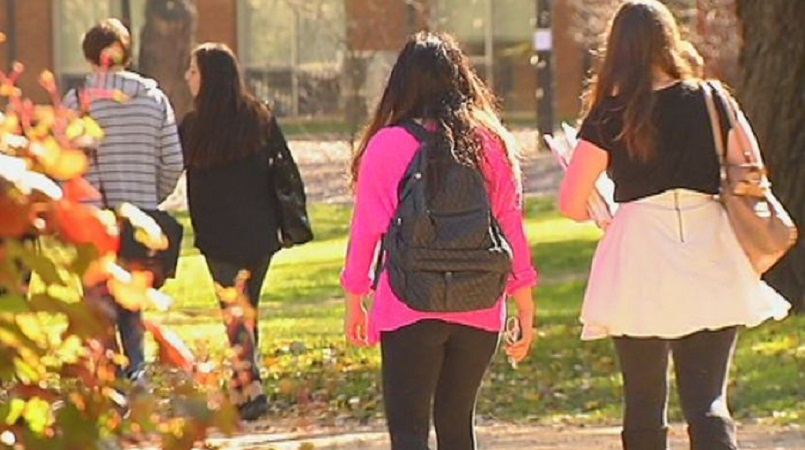
The findings of the world's largest survey on sexual harassment and sexual assault in student communities will be released on Tuesday.
We fully expect the results to be challenging.
The agreement to do this survey was forged almost two years ago. Vice-chancellors at 39 of our universities asked an independent body — the Australian Human Rights Commission — to survey their students to highlight what more needs to be done.
This is a global challenge. It is a community challenge. And it's one that university leaders want to address, but none of us can solve it on our own. All of us — university leadership, students and staff — can help to shift understanding and attitudes.
The scale of the problem
Just under half of our students come to university life straight from school. Their beliefs and attitudes about relationships, equality, consent and what constitutes unacceptable behaviour have already formed, for some more than others.
From past research, we know that one in five Australian women experience sexual violence during their lifetime and young women aged 18 and 24 are at particular risk of sexual violence. Men and LGBTQI community members also experience sexual assault and sexual harassment.
Last year, the violence prevention foundation Our Watch released important research of its own on the attitudes of young people aged 12 to 20 which highlights the scale of this challenge across society.
In that study, 11 per cent of boys said they have uploaded or shared embarrassing photos of girls they know; while 16 per cent of girls said that has happened to them.
One in four young people believed it was "normal" for a boy to put some pressure on girls to do sexual things.
We're talking about acts like "revenge porn" happening to children as young as 12. This means many of our young people will begin university already either a victim or a perpetrator of this sort of behaviour.
Trauma lives on
We expect the results will be challenging for everyone. But particularly so for students and survivors who have told their stories as part of this work.
Sexual assault is a despicable crime. And let's remind ourselves, it is a crime. We know from listening to survivors that the trauma lives on within them, even as time passes.
As we've embarked on this work, hearing those firsthand experiences of sexual violence victims has only strengthened universities' resolve and will lead to further change.
We know there's no simple quick fix for the challenge of sexual violence.
But, in the years ahead, Australia's university sector wants to be a global leader of the most effective way universities can respond to victims of sexual violence, and prevent it.
Every student should be safe while they are studying and every student should feel confident their university will treat all reports of sexual violence compassionately and fairly.
Support for students
In coming weeks, we will unveil further major policies and initiatives to strengthen our work to prevent sexual violence.
In preparation for the report, we're making sure that if anyone needs to talk, there'll be extra help available.
This week a new national support line will be established to handle an expected increase in demand for specialist support in the coming months. It will run 24 hours, 7 days a week at 1800 572 224, and will be operated by specialist trauma counselling service Rape and Domestic Violence Services Australia.
This interim service will be in addition to the face-to-face counsellors already in universities, many of them with decades of experience helping students in distress.
It is not the only service that universities have in place to support and protect their students.
For example, Monash University has been running their Safer Community Unit to investigate, manage and prevent incidents of sexual violence and harassment since 2008.
ANU has announced it will soon have a full time specialist sexual assault counsellor located on campus. And RMIT will become one of the first universities in Australia to commit to a process of restorative justice for victims of sexual assault.
There are countless further examples at each Australian university.
To students and survivors: by recounting your experiences, you will give us the more detailed picture we need to help us change things for the better. Not just in universities, but across society. Thank you.
Belinda Robinson is chief executive of Universities Australia.
